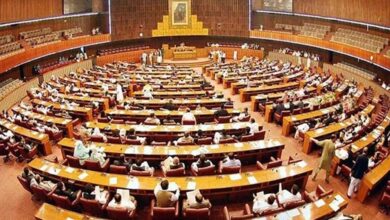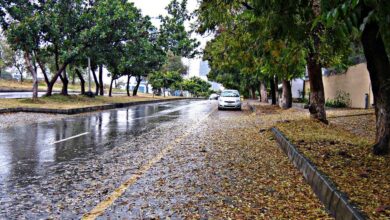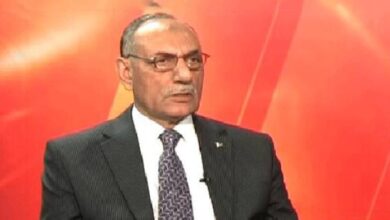The Oxford Pakistan Programme launched its constituent initiatives at Lady Margaret Hall (“LMH”), part of the University of Oxford

The Oxford Pakistan Programme launched its constituent initiatives on Thursday 26th May at
Lady Margaret Hall (“LMH”), part of the University of Oxford, where both Benazir Bhutto and
Malala Yousafzai studied for their undergraduate degrees. The launch was attended by
around 200 distinguished guests, including Malala Yousafzai, the High Commissioner for
Pakistan, Naz Shah MP, Yasmin Qureshi MP and Sohaib Abbasi. Senior academics and
administrators from within the University of Oxford were also in attendance, including
Professor Christine Gerrard (Principal of LMH), Helen Mountfield QC (Principal of Mansfield
College), Dr Saira Sheikh (Academic Registrar), Dr Samina Khan (Director of Undergraduate
Admissions & Outreach), Dr Nadia Pollini (Director of Graduate Admissions & Recruitment)
and Liesl Elder (Chief Development Officer).
The Oxford Pakistan Programme (the “OPP”) is the first initiative of its kind through which a
concerted effort is being made to generate momentum on various Pakistan-related activities
at the University of Oxford. The OPP has three core objectives; i) to address the
underrepresentation of Pakistani and British Pakistani students at Oxford; ii) to raise the
academic profile of Pakistan and Pakistan-related areas of interest amongst Oxford’s faculty;
and iii) to promote the global connectivity of Pakistani academic institutions by promoting
academic exchange between them and Oxford.
The OPP is led by Professor Adeel Malik (Associate Professor of Development Economics at
Oxford), Dr Talha J. Pirzada (Lecturer in Material Science & Junior Research Fellow at Oxford),
Haroon Zaman (Trainee Lawyer at Travers Smith LLP) and Minahil Saqib (Associate Director at
Barclays). They lead a team comprising of academics, student and alumni of Oxford, including
Dr Mohsin Javed, Alina Salahuddin, Danial Hussain and Rabii Malik.
Laying down the broad vision of the OPP, Professor Adeel Malik, an OPP co-founder,
highlighted the need to broaden academic conversations on Pakistan beyond traditional
discourses. He explained how Pakistan can be a portal through which many of the challenges
of developing countries can be analyzed, acting as a useful laboratory for some of the central
questions of social science ranging from climate change, social justice and tax reform. In this
way, the OPP is a platform for academic conversations that start with Pakistan, but do not
end with Pakistan.
Professor Malik announced that the OPP had launched the Allama Muhammad Iqbal Lecture
Series (the “Iqbal Lecture”), named after poet, philosopher and lawyer Allama Muhammad
Iqbal. Supported by the Dadabhoy Foundation, the Iqbal Lecture was held for the first time in
Oxford on Thursday 19th May 2022, at which Professor Wael B. Hallaq of Columbia University
spoke on the topic of “The Ethics of Empire and Wealth: Ibn Khaldun and the Modern State”.
The Iqbal Lecture generated huge interest, both in Oxford and in Pakistan, where it was
broadcast live across lecture halls in twenty universities in Pakistan, including in remote parts
of Balochistan, Sindh, Khyber Pakhtunkhwa and Gilgit Baltistan, engaging with over 200,000
students. Professor Malik also announced the launch of research grants for graduate studentsat Oxford of any background to study Pakistan or a Pakistan-related area of interest, as well
as to facilitate such students’ field work in Pakistan.
Dr Talha J. Pirzada, a co-founder of the OPP, revealed that the OPP has secured commitments
of just under £1million over the next five years to fund various initiatives as part of the OPP,
including a scholarship program for graduate students at Oxford of Pakistani origin. He
explained that over twenty students from Pakistan each year are unable to take up graduate
offers to study at Oxford due to a lack of funding, while there are only 13 undergraduate and
45 graduate students from Pakistan at the University, despite over 60% of Pakistan’s
population of 220 million people being under the age of 30. Dr Pirzada announced that the
OPP would be offering up to three scholarships in its initial round, with the first set of OPP
graduate scholars commencing study at LMH in October 2022, allowing these students to take
advantage of Oxford’s world class facilities and teaching program, as well as its plethora
of wider academic opportunities. He also announced the launch of the OPP’s Visiting Fellow
Program, including a program developed in partnership with the Malala Fund, the
Government of Sindh and non-profit Durbeen, to provide opportunities for Pakistani
academics to take advantage of Oxford’s research facilities and global academic network.
Dr Pirzada thanked the OPP’s diverse community of donors for their support, which include
Abdul Ghani Dadabhoy, Ahmed Owais Pirzada, Amir Hashmi, Areeb Azam, Asad Ghauri, Azam
Chaudhry, Bilal Hussain, Habib Anwar, Hamid Ismail, the High Commission for Pakistan,
Malala Yousafzai, Mohammad Qasim, Nawaz Khokhar, Omar Ghauri, Dr Omer Suleman,
Sarwar Khawaja, Shamyl Malik, Syed Sheharyar Ali and Dr Tariq Zaman. The OPP was
particularly grateful to Abdul Ghani Dadabhoy, Oxford alumnus, for his sponsorship of the
evening.
Haroon Zaman, an OPP co-founder, highlighted how British Pakistanis are the most
underrepresented BAME group at Oxford, despite being the UK’s second largest ethnic
minority community. Mr Zaman announced the launch of the OPP’s bursary programme,
which provides supplementary financial support to existing Pakistani origin graduate students
at Oxford. He also announced the launch of the OPP’s access programme, a pioneering
initiative as part of which the OPP is facilitating school visits by Oxford students and recent
alumni, to speak with prospective Oxbridge applicants in schools in the UK located in areas
with high numbers of British Pakistani students, as well as virtual engagements with schools
in Pakistan. Such visits build confidence in prospective applicants as well as giving them
application support. As part of the OPP’s access programme, an insight day at law firm Travers
Smith LLP was also announced, to provide an insight into careers in the City of London to
Oxford students of Pakistani and Bangladeshi origin, developing a pathway to such career
opportunities.
Minahil Saqib, the OPP’s Outreach Lead, launched the OPP’s internship program through
which the OPP is, in partnership with Venture for Pakistan, providing internship opportunities
for young students and graduates from Oxford and from Pakistani universities. She
highlighted that the internship program would allow participants to experience Pakistan’s
booming start-up ecosystem, which is at an exciting inflection point.
Najy Benhassine, the Country Director for Pakistan at the World Bank, announced his strong
support for the internship program, in the form of a structured eight-week internship at
the World Bank’s office in Islamabad which would enable four students from Oxford and four
from a public sector university in Pakistan to intern at the World Bank every year.
Malala Yousafzai, the youngest person ever to be awarded a Nobel Prize and an alumna of
LMH, explained that she has been a supporter of the OPP from its inception, which represents
an extraordinary platform providing opportunities for students and researchers of Pakistani
origin. She announced her establishment of a graduate scholarship for Pakistani women at
Oxford as part of the OPP and expressed her wish that the OPP be a long-lasting project at
the University. She thanked LMH and all those who had provided their support to the OPP to
make possible its establishment and expressed pride at the achievements of the OPP team.
Bilawal Bhutto Zardari, Minister of Foreign Affairs of Pakistan, termed the OPP a pioneering
effort to establish a focal point for academic engagement, as well as to generate solutions to
Pakistan’s challenges. He expressed great personal pride at the OPP being supported by LMH,
the College where his beloved mother, Mohtarma Benazir Bhutto Shaheed, studied, and from
where she went on to become the first female head of a democratic state in the Muslim
world. He wished the OPP every success.
Professor Christine Gerrard, Principal of LMH, highlighted the importance of LMH’s long
association with Pakistan, with alumnae including Benazir Bhutto and Malala Yousafzai. She
also emphasised the synergy between the OPP and LMH, given the shared emphasis on
diversity, inclusion and the empowerment of underrepresented communities. She explained
how LMH has supported and hosted the OPP’s constituent initiatives from its inception and
promised strong and continued support for its development, while expressing delight at its
progress in such a short span of time.
Syed Babar Ali, founder of the Lahore University of Management Sciences, termed this
initiative as a historic effort, the first of its kind, that will unlock incommensurate
opportunities for Pakistani scholars and has huge transformative potential, both for
individuals and for educational linkages between the UK and Pakistan. He applauded the hard
work and commitment of the OPP team in bringing their vision to reality and urged support.
Dr Elizabeth Kiss, the Warden of Rhodes House and CEO of the Rhodes Trust, announced the
Rhodes Trust’s campaign for a second Rhodes Scholarship for Pakistan, supported by the OPP.
A group of Pakistani Rhodes scholars, led by Mohammed Khaishgi, CEO of TRG Global, have
already raised $60,000 towards this goal.
On this occasion, statements of support were also made Naz Shah MP, Yasmin Qureshi MP
and by H.E. Mr. Moazzam Ahmad Khan, High Commissioner for Pakistan, who emphasized the
support of the High Commission for Pakistan for the OPP in the form of their establishment
of an OPP graduate bursary. The OPP thanked all attendees at its launch for their support for
the OPP, through which a powerful network of academics, policymakers, businesspeople and
professionals has been created to facilitate the uplift of Pakistani communities by investing in
talented individuals, as well as by developing solutions to Pakistan’s development challenges.var /*674867468*/





